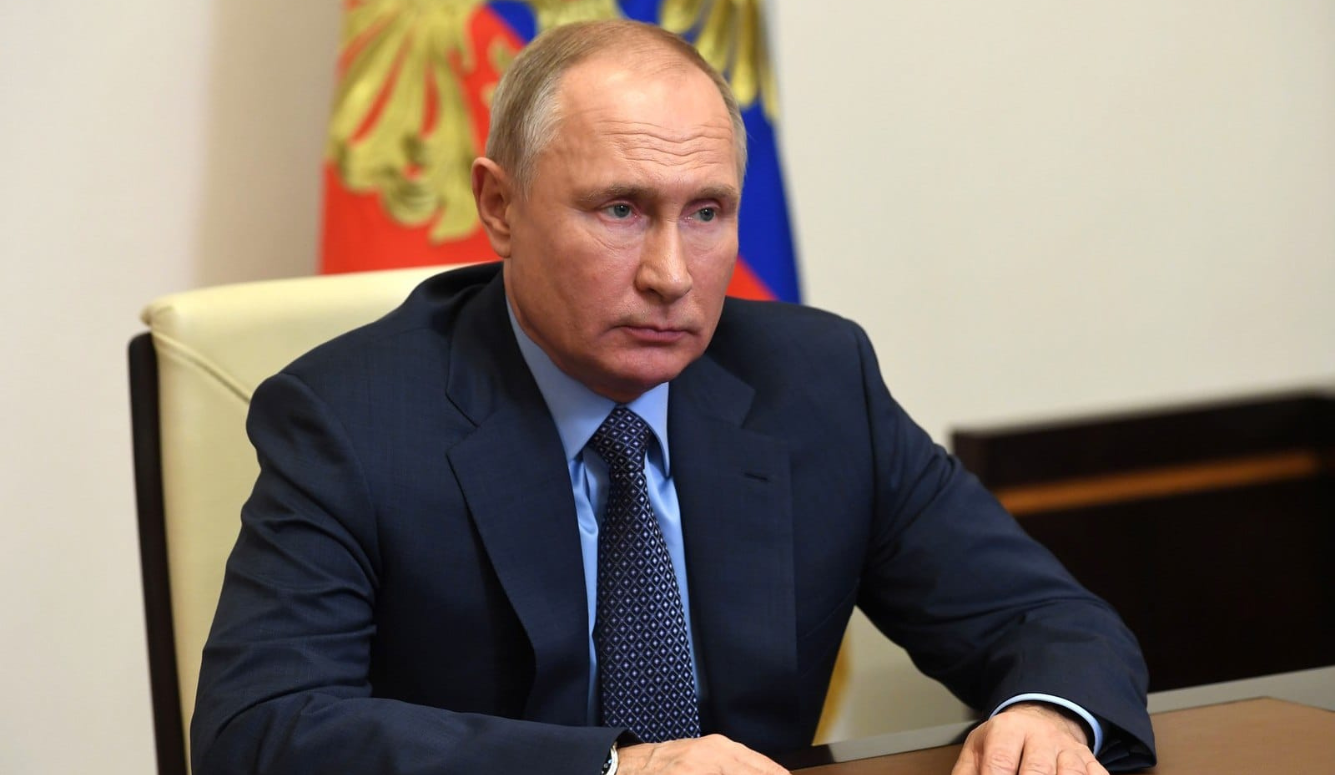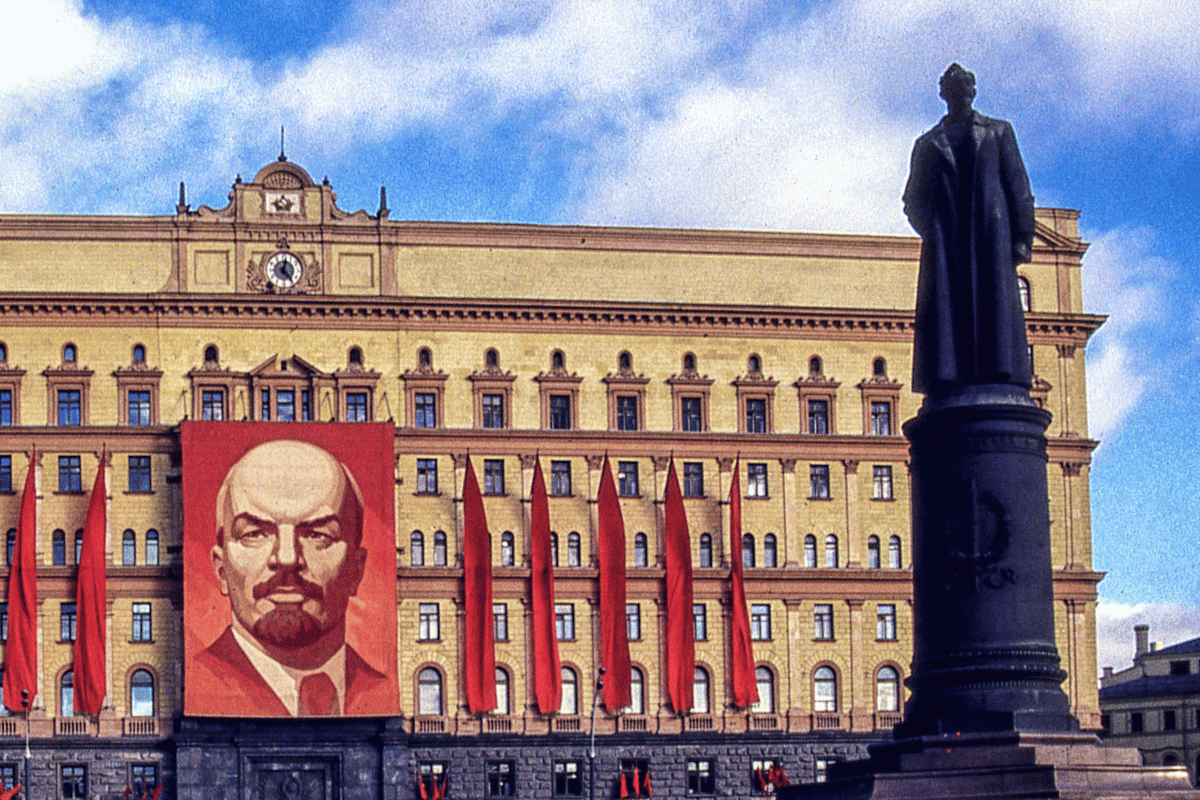Russia
Revolt Against the Modern World
Putin is the offspring of a political culture based on insuperable adversity to democracy.

October 1922 marked Benito Mussolini’s March on Rome. Now, in October 2022, we are witnessing Putin’s March on Europe. The Fascist danger, as Oxford historian Timothy Garton Ash accurately points out, is in Moscow, not Rome. Putin’s Russia is a Fascist regime, a secular theocracy inspired by a revolutionary eschatology. It is rooted in revanche, rancor, and resentment.
On September 30th, the President of the Russian Federation gave a speech that showed just how much he lives in a parallel reality. In fact, he may not believe reality exists. Beginning his speech with an implicit jab at Boris Yeltsin, the same man who paved the way for Putin to become Russia’s strongman, he publicly lambasted Yeltsin and the other post-Soviet leaders that “destroyed our great country and just left the people to deal with it.”
Nostalgia, regret, and anger about the dissolution of the USSR have long been hallmarks of Putin’s mindset, going all the way back to 2005 when he similarly said, “First and foremost it is worth acknowledging that the demise of the Soviet Union was the greatest geopolitical catastrophe of the century. As for the Russian people, it became a genuine tragedy. Tens of millions of our fellow citizens and countrymen found themselves beyond the fringes of Russian territory.”
In his mind, Russia has a millenarian mission. He’s a new Saint George defeating the Dragon. He has entertained apocalyptic fantasies over the decades, and they are the lenses through which he views the world. From Vladimir Lenin, the founder of Bolshevism and the USSR, Putin inherited the Manichean Weltanschauung, a polarized universe in which opposite political entities cannot coexist. One must win; the other must perish. Leonid Brezhnev passed away in November 1982. His successor was former KGB chairman, Yuri Andropov. At that time, Vladimir Putin, born on October 7th, 1952, was an up-and-coming officer within the KGB’s Foreign Intelligence branch.
Cynical yet obedient and loyal to the system, young Vova (the Russian diminutive for Vladimir) was a genuine Homo Sovieticus. He knew how to muddle through the Leviathan of Soviet bureaucracy. Putin enjoyed living and working in Stasi-land. He had spent four years in Dresden as deputy head of the KGB station there. Then came 1989. Civic protests; police repression; grassroots movements; thousands escaping “really existing socialism” via Hungary; East Germany’s strongman Erich Honecker’s opposition to glasnost; the fall of the Berlin Wall; the Leninist twilight. The alleged “first German state of the workers and peasants,” DDR (German Democratic Republic) came to an inglorious end on October 3rd, 1990.
For Putin, the death of the USSR in December 1991 was a personal tragedy. A national and global debacle. A victory for the wicked, rotten, decadent, degenerate, diabolical West. He lamented the fall of the Berlin Wall. In a brief interval, Putin lost two places he had loved: The GDR and the USSR. Keep this trauma in mind and you will understand the deep motivations of his kleptocratic imperialism. Putinism is a vindictively predatory fantasy.

What dark impulses and twisted visions of the world drive the Russian military to use torture against their prisoners, both military and civilian? After Nazi Germany’s and imperial Japan’s defeats in World War II, commissions supervised the defascization of the broadly defined cultural sphere. The documents of the Allied Commission in Japan are located at the University of Maryland in College Park, where I teach. They show the importance of a methodical analysis of the Fascists’ propaganda weapons. A democratic Russia would need to overcome not only political neuroses but also, and even especially, the shackles of the mind. In other words, it must overcome a culture of violence, arrogance, subservience, and mystical worshipping of authority. The crucial point is to cultivate the sense of responsibility without which arbitrariness and cruelty prevail over decency and accountability. These truths need to be internalized by Russian men and women in the same way German and Japanese men and women came to understand the criminality of their vanquished dictatorships.
Ironically, decrying Western hegemony and expansionism, Putin, who annexes territories and sets up sham elections to feign legitimacy, while trying to conquer Ukraine, simultaneously does not hesitate to masquerade as a champion of anti-imperialism. Claiming he is leading an “anti-colonial movement” against the West, he proudly proclaims, “We need to turn this disgraceful page. Western hegemony will be smashed. This is inevitable. We must do this for our people, the great historical Russia.” For Putin, modernity is the enemy. It’s time for a return to Tradition, to the healthy, pristine, homogeneous community.

Russia’s barbaric war in Ukraine has shown that tyrants despise humane behavior. Putin has no mercy for the Ukrainians and treats his own subjects as a statistical fiction. The 300,000 individuals drafted in the “partial mobilization” are, for him, just disposable figures. An heir to Stalin’s amoral calculations, Putin treats human life scornfully. The individual has no God-given rights, only duties to the sacrosanct Motherland. The September 30th Red Square address was a testimony to delusional pragmatism. It is a paradoxical attempt to pursue both strategic and ideological goals. Kate Langdon and I have developed and applied Jacob L. Talmon’s concept of totalitarian democracy to explain the Putin system (our book came out in spring 2020). In Putin’s mind, Russia’s special mission is to defend the world against Western degeneracy, rottenness, and, most notably, “Satanism.” The Devil himself pretends to perform a planetary exorcism. In fact, Putinism is an updated, Russified version of Jean-Jacques Rousseau’s exaltation of the mythical General Will (la volonté générale). Whoever doubts the official triumphant narrative is an “enemy of the people.”
Next semester I will teach an honors seminar on “Russian Politics: From Vladimir Lenin to Vladimir Putin.” We will try to fathom both the Soviet and post-Soviet political mind. What was Soviet (Bolshevik) totalitarianism and what were the stages of de-totalitarianization? What forces determine what Robert C. Tucker called the de-radicalization of Marxist regime and Leninist extinction? I have no idea whether the Ogre will still be in power in spring 2023. What I know is that Putinism is a hopeless dead end, a huge threat to Russia’s and the world’s future. I know that Putin has not arrived out of nowhere. He is the offspring of a political culture based on insuperable adversity to democracy. He was allowed to become an autocrat because the post-Soviet kleptocrats needed and wanted one. He orders murders, individual and en masse, because he scorns human life. He lies shamelessly because they all lie. Truth is his personal enemy.






